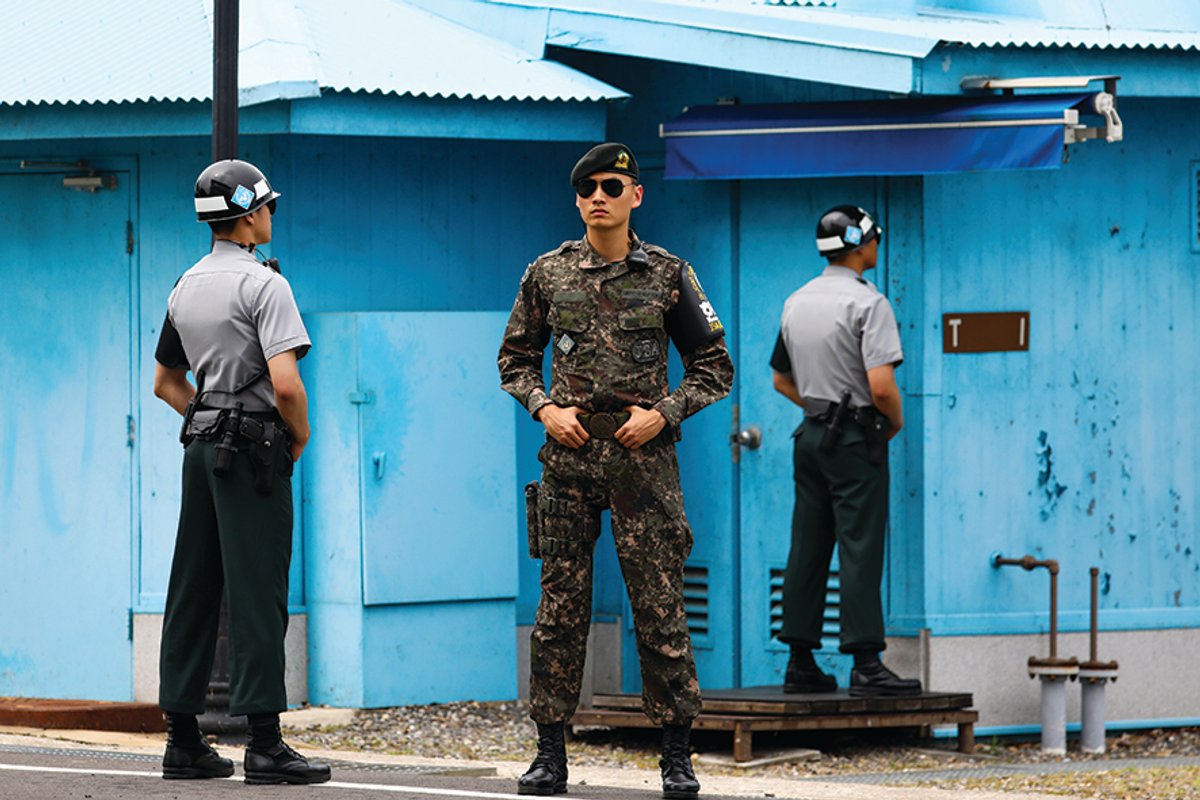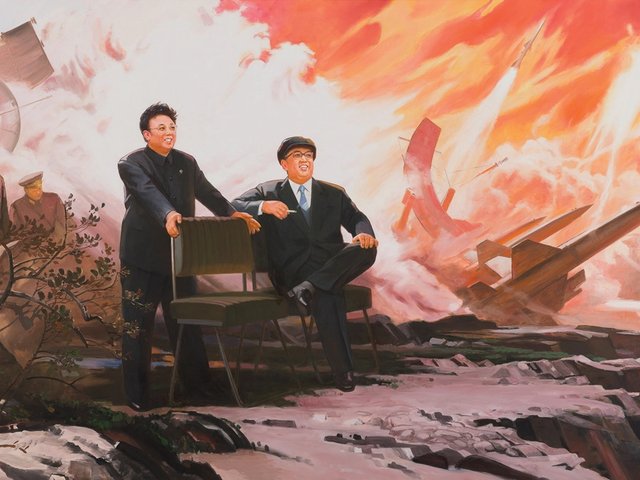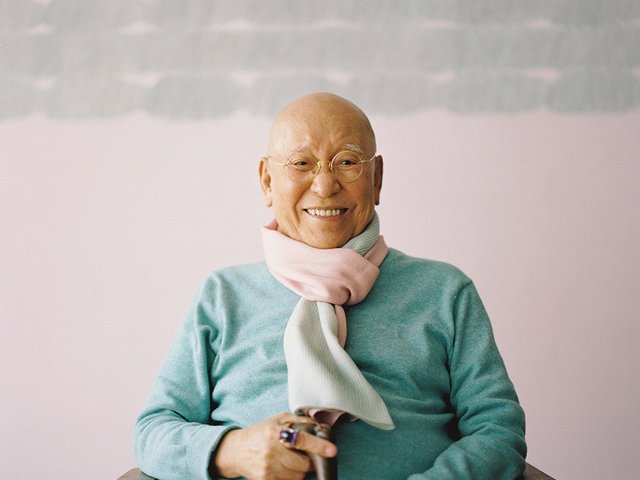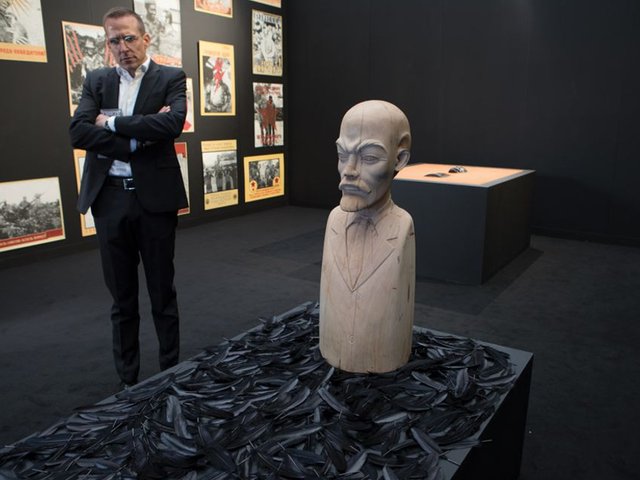The Scottish artist Douglas Gordon has made a film about Korea’s Demilitarised Zone (DMZ), the strip of land separating North and South Korea. The work, entitled Portrait of Janus (2017), shows the DMZ border being tattooed vertically along the spine of a young Korean man.
“Janus, who was adopted as a baby by a Danish couple, often returns to Korea to research his family history. The film shows the tattooist’s needle moving up and down his spine in an abstract way,” says Jon Bewley, the director of Locus+, a visual arts agency based in Newcastle-upon-Tyne, in north-eastern England. The organisation commissioned the film as part of a season of cultural programming initiated by the British Council (the UK/Korea 2017-18 Creative Futures season).
The heavily fortified DMZ is not just a border point but a hugely symbolic barrier. “Gordon’s work is not about nationalism but, in part, physical frontiers as psychological metaphors. At this moment in time, Portrait of Janus is highly prescient,” Bewley adds. The piece was made against the backdrop of an escalating war of words between US President Donald Trump and Kim Jong-un, “supreme leader” of North Korea. Janus was found “through word of mouth via refugee networks”, Bewley says.
The work is accompanied by a performance by the high-profile South Korean cellist Okkyung Lee. When the film is shown for the first time later this year at the Art Sonje Center in Seoul, it will be accompanied by a live performance by Lee. The piece is also due to be shown at the Korean Cultural Centre in London in early 2018.
UK-Korea’s new commissions
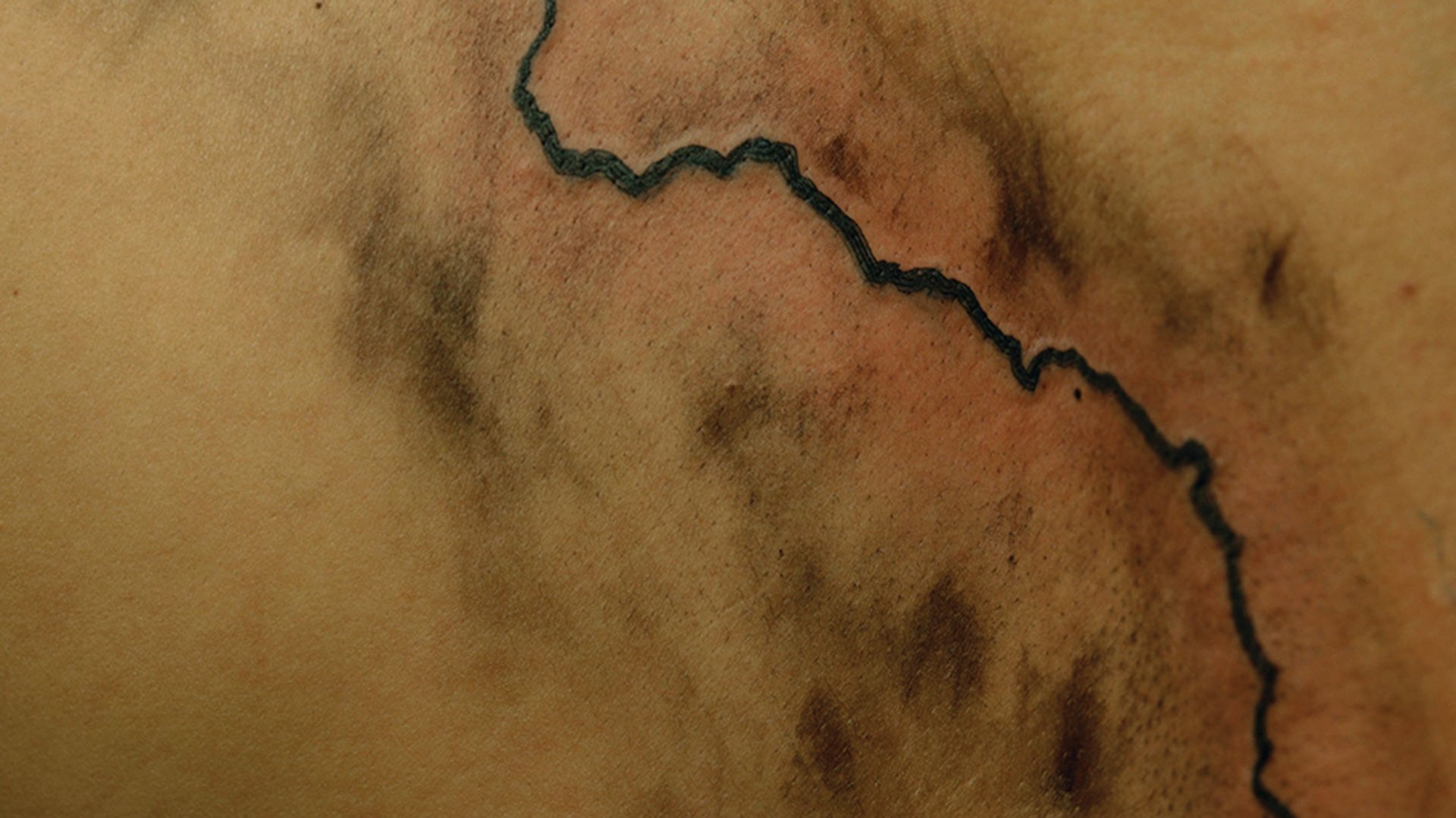
tudio Lost But Found/VG Bild-Kunst
The British Council’s UK-Korea programming is running in parallel with a collaborative project launched in March 2016 by Arts Council England and Arts Council Korea. The organisations awarded a combined £1.4m to 21 South Korean and English performing and visual arts organisations in a bid to bolster “creative collaborations between arts organisations and artists in England and Korea”, a statement says.
The Liverpool Biennial is leading a key strand of this project, working on joint commissions with curators at the Gwangju and Busan Biennales and the Seoul Museum of Art. “We are commissioning [the South Korean artists] Haegue Yang and Suki Seokyeong Kang [to make new pieces] for the 2018 Liverpool Biennial,” says Sally Tallant, the director of the biennial in the port city in north-western England.
Meanwhile, eight UK visual arts institutions are working with eight South Korean institutions to set up an artists’ residency exchange programme for emerging artists from both countries, says Emma Dean, a curator at Gateshead’s Baltic Centre for Contemporary Art, which is leading the consortium of English organisations. This includes Fact in Liverpool and the Wysing Arts Centre in Cambridgeshire; the South Korean institutions have not yet been announced.


